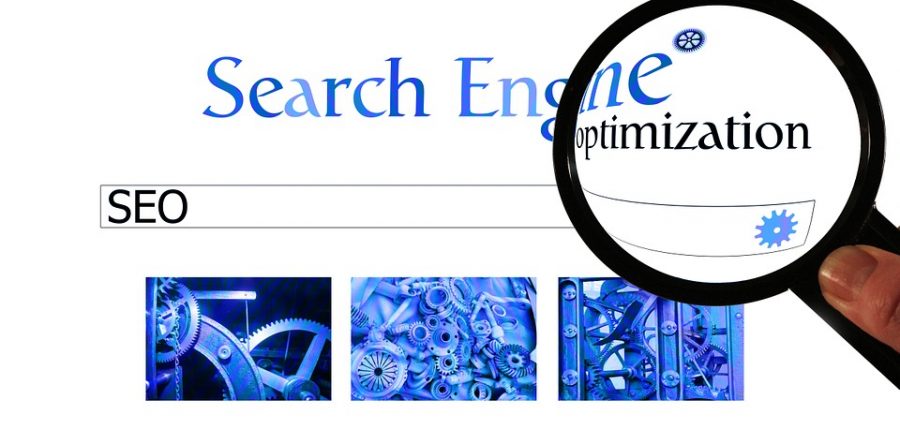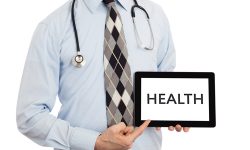Introduction
One of the cheesy maxims that I am always quoting to my patients is, “information is everything.”
Information, about you and about what’s wrong with you is the basic currency by which to manage your health – or by which your doctor does.
Information about you that is needed is your personal medical history, family history (and ideally an analysis of your genome), information about your environment and other things that influence your health. But that is not my focus here. My brief is to guide you to good information that is needed to make the right diagnosis and decide the right course of action.
Your doctor has a certain fund of knowledge from medical school and experience, but has to do “continuing medical education” to maintain his or her license because there’s so much to know, (the journal PLOS Medicine notes there are now seventy-five trials and eleven systemic reviews of trials published each day).
To make it harder, that information is changing all the time – sometimes undergoing radical revisions, with what author and  doctoror, Steven Kussin, M.D. , describes as “neck snapping” U-turns, where what was the best thing since sliced bread until now, seems to be absolutely wrong - Echinacea, coronary artery bypass grafts, aspirin, bisphosphonates, breast self exam, PSA tests to name a few.
doctoror, Steven Kussin, M.D. , describes as “neck snapping” U-turns, where what was the best thing since sliced bread until now, seems to be absolutely wrong - Echinacea, coronary artery bypass grafts, aspirin, bisphosphonates, breast self exam, PSA tests to name a few.
All this information and the constant change makes it very challenging for your poor doctor and may explain the scary number of people who get wrongly diagnosed - up to 40% some claim.
You can do a lot to help yourself by being informed. As demonstrated by a great case report in British Medical Journal a while back about a 16 year old Australian water polo player who presented to a high powered medical school with a thrombosis in his subclavian vein (the vein that runs up the inner arm to the axilla)
One doctor was explaining to the patient and his dad that this was fairly unusual and it was hard to know why it had happened, when the father jumped in, announcing, “He has Paget-Schrötter syndrome.”
This is a very rare condition where repetitive arm motions lead to thrombosis in the vein. But the father was right. He had simply Googled the symptoms, he explained to the dumbfounded doctors. He then proceeded to give “a mini-tutorial on the pathophysiology ... and told us the correct treatment” the author of the BMJ article noted.
It is not so unheard of, for the patient to be better informed than the doctor. At least on the particular issue affecting them – though the doctor is liable to have a better overall perspective about how serious your symptoms are, or the probability of the tingling in your fingers being multiple sclerosis or the pain in your stomach being cancer for example. So consulting with your doctor is a wise addition to just doing your own research.
A rather alarming comment on this problem of the difficulty for the doctor to know all about everything came from Stanford cardiologist Paula Yock, writing in the April 2009 edition of The Economist who said, “The dirty little secret about medicine is that we physicians make decisions all the time based on woefully incomplete information.”
Doesn’t that make you feel good? It should at least act as a spur to encourage you to seek out your own information. But the question is where?
Where and How to Get Reliable Information
There are billions of medical websites – second only to the number of porn sites. The crux of the matter is knowing how to know if your source is accurate, unbiased and up to date. The traditional resource until recently has been text-books and journals, but the computer age has made the Internet the primary go-to resource – and some 70-80% of internet users look for health information.
When selecting a site consider:
- Accuracy: this is influenced by where the information comes from and is it reviewed by anyone? If the information is from peer reviewed medical journals it should be pretty OK. Or the site itself may have a review panel, you should be able to see from their credentials if they have credibility.
- Be skeptical of the objectivity of sites that have a particular issue to promote or who are selling something. Even with respectable sites it’s possible the editorial content may be just a little modified so as not to offend the advertisers (this certainly happens in even the most prestigious medical journals, but the well respected WebMD website has ads for nose sprays on their page about allergies for example).Why the site exists/who runs it is an interesting question. Is it there just to promote one particular product or point of view? If so, you need to maintain a degree of skepticism, or go to other sites as well. If it endorses some one product; has a link to it; has only positive reviews; or claims sound too good to be true, that’s probably not very objective information.
- How current is the information: As noted, stuff goes out of date all too quickly, so look for information that’s not more than a year or two old if possible. Articles will sometimes have a date at the top or the bottom of the page. Or there may be a date when the page/information was last reviewed by the owners of the website.
- Who endorses it: There are various organizations who check out, and give their blessing to medical websites, if they meet their criteria. The one I’ve seen most often recommended is Health on the Net Foundation (www.hon.ch), a Swiss-based, international organization “founded to encourage the dissemination of quality health information for patients and professionals and the general public.” They certify for accuracy and ethical standard, and review the site every year. Look for the HON logo at the bottom of the page to know if the site is certified.
- What’s the domain: Generally government sites that end in “.gov” or educational establishments that end in “ .edu” or most likely to be objective. Sites with a “.org” used to be considered more reliable, but that is less the case these days.
Social Media Sites
There is a growing number of sites where people share personal experiences and what they have learned.
Blogs, forums, message boards, wikis, video sites, and other mediums allow people to share and compare experiences. Patients Like Me (www.patientslikeme.com) is a popular site founded by Jamie Heywood, whose brother had Amyotrophic Lateral Sclerosis (ALS, otherwise known as Lou Gehrig’s disease). “We have learned so much about what patients need to know. We hope to help patients share their knowledge with others,” says Heywood.
These sites are liable to have more subjective than objective information. But this can be very comforting to have contact with people who are patients or caregivers with the same kind of issues. And may provide detailed, personal help suggestions your doctor may not think of, or be aware of.
There are also specialized sites for specific illnesses like the American Cancer Society at www.cancer.org or more narrowly focused groups like the National Breast Cancer Foundation at www.nationalbreastcancer.org. There's the Alzheimer’s Foundation of America at www.alzfdn.org and the National Multiple Sclerosis Society at www.nationalmssociety.org, the American Heart Association at www.heart.org and so on. These are a halfway house between patient sharing sites, and academic information sites.
Resources
So what are the good sites?
Using the above criteria, you can decide for yourself to a great extent. To get started, put in whatever subject you’re interested in, to whichever search engine you use (or “Google it” to use a newly spawned verb for the most popular search engine). Or Google Scholar will get you to more serious sites.
The problem with the more serious sites – like The National Center for Biotechnology Information’s site PubMed (www.pubmed.gov), the largest component of which is Medline (www.medlineplus.gov), and Cochrane Community http://community.cochrane.org, both of which are touted as the best, is that they have so much information and much of it so technical that it’s hard to tease out usable information.
Author/doctor Steven Kussin claims “hands down, thumbs up” the best site is UpToDate at www.uptodate.com. The trouble with this is apart from the most basic information, you have to pay. You also often have to pay for the full text of articles from PubMed as well.
The site Net Top 20 rates all different kinds of websites. But they have a ranking specifically for medical sites (medical.nettop20.com) – incidentally, their top 2 sites are WebMD (www.webmd.com) and HealthCentral (www.healthcentral.com).
So you need to be informed, but you need to be savvy as well – heeding the comment of Dr. Paul Cundy, chairman of the British Medical Associations technology subcommittee, ho warns, while there’s much more information available than ever before, “much of it seriously wrong”.






